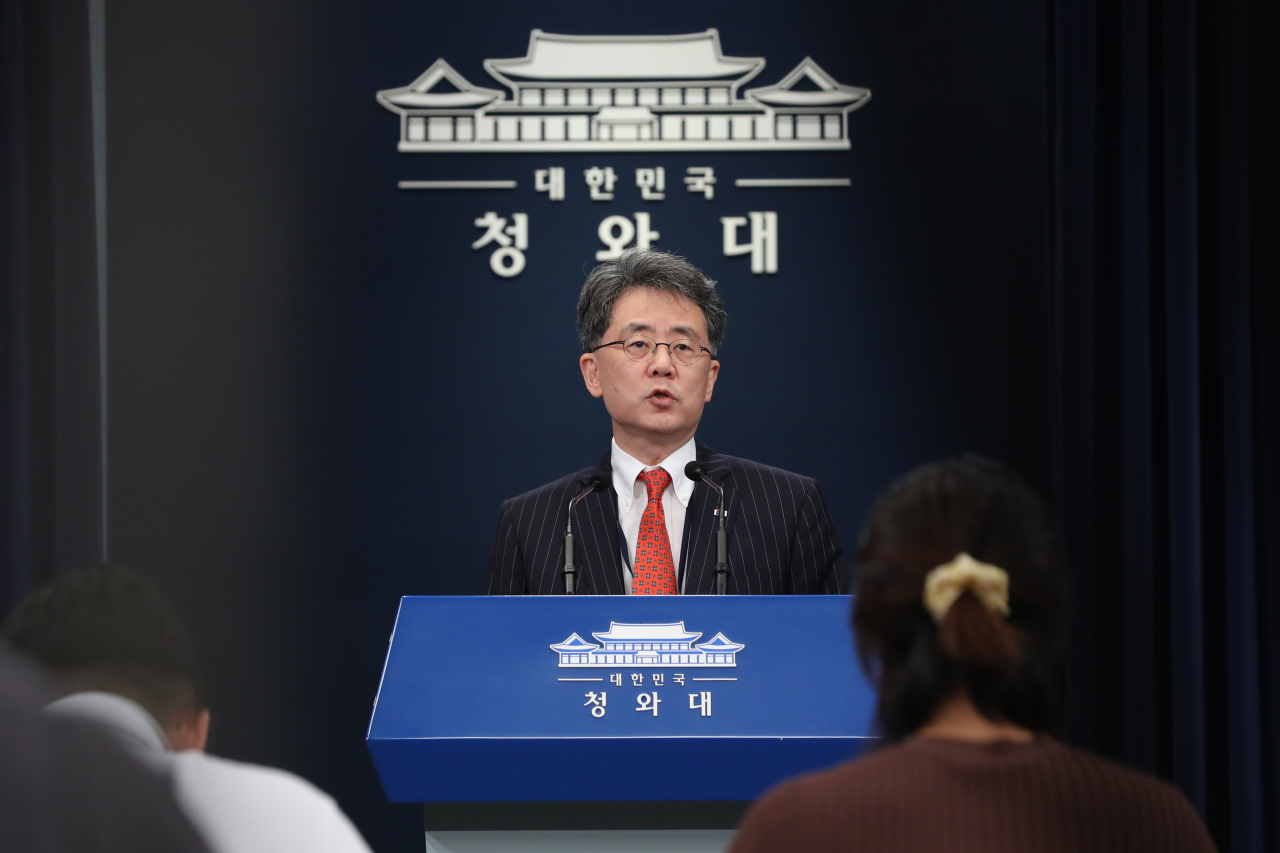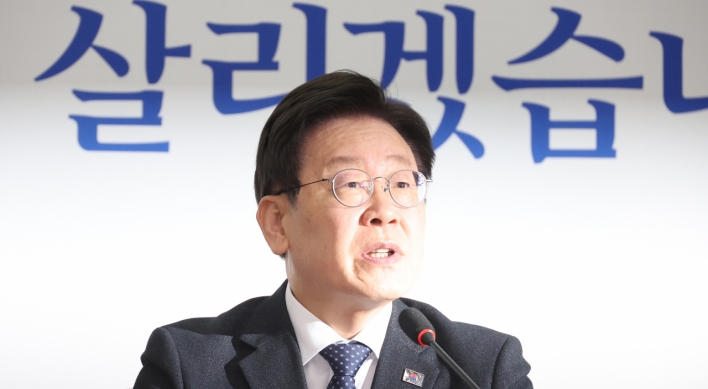S. Korea allowed to develop solid-fuel space rocket under revised missile guidelines with US
By YonhapPublished : July 28, 2020 - 14:48

South Korea announced Tuesday it has become able to develop solid-propellant space rockets under the new missile guidelines with the United States, saying the deal is expected to help sharply improve the military's intelligence, surveillance and reconnaissance (ISR) capabilities and boost the space program of the private sector.
The allies agreed to lift the decades-old restrictions on Seoul's use of solid fuels for its space rocket launch, effective as of the day, according to Kim Hyun-chong, deputy national security adviser.
"Today, (the two sides) have adopted the 2020 revision of the missile guidelines to completely remove the restrictions on the use of solid fuels for (South Korea's) space vehicle," Kim said in a press briefing.
Therefore, South Korean companies, research institutes and even individuals are technically capable of "developing, producing and possessing" various types of space rockets, based on not only liquid fuels but also solid and hybrid ones, with no restrictions, he added.
It would greatly advance the military's ISR capabilities by enabling it to launch low-earth orbit spy satellites, flying at the altitude of 500-2,000 kilometers, anytime and anywhere, Kim said.
In that case, the entire Korean Peninsula would be under the around-the-clock watch of South Korea's military, called an "unblinking eye," he emphasized.
As satellites operate closer to the earth, the resolution of imagery taken gets higher.
Solid-fuel rockets are faster to shoot and harder to detect ahead of take-off, as well as cost-and fuel-efficient, causing less metal corrosion. They are easier to launch from a transporter erector launcher (TEL).
Should South Korea speed up related R&D projects, it would be possible for the nation to have multiple military recon satellites before the end of the 2020s, Kim said.
The military is seeking to upgrade ISR assets, in particular, as part of preparations for the "conditions-based" transition of wartime operational control from South Korea's ally.
"Through the revision (of the guidelines), I would like to say a systemic foundation to improve our space infrastructure has been created, and a path has been opened for the Korean-version New Deal to expand into space," he said, citing rapid growth of the global space industry. He was referring to the Moon Jae-in administration's digital and green initiative to create jobs and foster economic growth amid the COVID-19 crisis.
Seoul first signed the missile guidelines with Washington in 1979. The guidelines were last revised in 2017 to scrap a payload cap of 500 kilograms for South Korea's ballistic missiles with ranges of 800 kilometers.
Kim said the range limit remains in place but that the problem can be resolved "in due time" if necessary for military purposes.
This time, he said, South Korea focused on the space rocket issue.
He revealed some details of the negotiating process, an unusual move over a sensitive diplomatic issue.
Initially, he said, the Ministry of Foreign Affairs talked with the U.S. State Department's team on international security and nonproliferation, but there was little progress.
Moon then instructed the national security office at Cheong Wa Dae in October 2019 to handle the matter in a "top-down" approach.
Kim had since led the negotiations primarily with the White House National Security Council.
He is known to have made unannounced visits to the US last November and in February this year.
In addition, he discussed the issue in meetings with US Ambassador to South Korea Harry Harris and Deputy Secretary of State Stephen Biegun, who traveled to Seoul early this month.
Biegun was quoted as telling Kim during his latest trip here that the US wants to "rejuvenate" the alliance.
"I replied that 'recalibrate' could be a more precise word to mean efforts to strengthen, upgrade and enhance it," Kim told reporters. "I think it was possible to revise missile guidelines in such a context." (Yonhap)







![[Hello India] Hyundai Motor vows to boost 'clean mobility' in India](http://res.heraldm.com/phpwas/restmb_idxmake.php?idx=644&simg=/content/image/2024/04/25/20240425050672_0.jpg&u=)










